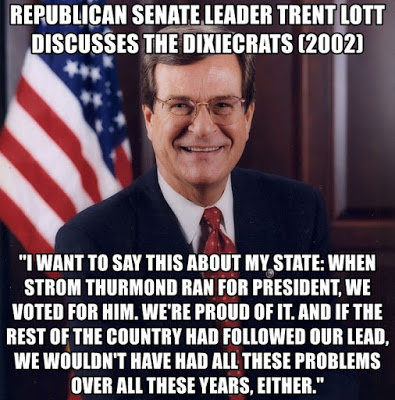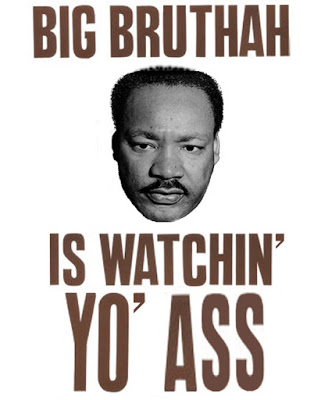 |
| This represents a large part of the Republican electorate. |
Some anti-Trump pundits are inferring that the initially poor box-office performance of Dinesh D’Souza’s current movie Death of a Nation reflects a decline in the popularity of President Trump. What they fail to take into account is that D’Souza’s cinematic success has been in steady decline for several years. Here’s the breakdown:
2012 Obama’s America $33,449,086
2014 America: Imagine the World Without Her 14,444,502
2016 Hillary’s America 13,099,931
2018 Death of a Nation 5,885,881
The reason for the decline, I believe, is that D’Souza, adhering to the anti-racist neoconservative line, is falling more and more out of step with the multitude of Republicans in the Age of Trump.
D’Souza’s great opportunity came with the election of Barack Obama. Many White people were profoundly uncomfortable with having a Negro president, but were afraid to say it. Rush Limbaugh stated on several occasions that Republicans in Congress hesitated to resist or criticize Obama because of fear of being called racist:
“This is what Republicans are still afraid of, in fact, is being called ‘racist’ if they criticize him. They’re still afraid to jump all the way in with both feet on this because they’re afraid of that charge of being called racist.” (Rush Limbaugh, 4 October 2010)
“And I’ve mentioned [that in 2012 Haley Barbour] made the point, ‘We cannot criticize Obama, Rush, as a party. We can criticize his policies. We can criticize his policies all day long, but we can’t go there.’ He didn’t say why, but it was the unspoken, you can’t go there ’cause he’s African-American, we’ll be called racist, and it was the same old song and dance. I didn’t say anything. I just sat there and nodded.” (Rush Limbaugh, 15 June 2016)
“What has happened is, the Republican Party has by and large been shut down. Their reluctance to be critical of anything Obama is doing is rooted in the fact that they don’t want to be called racist by the media.” (Rush Limbaugh, 14 July 2014)
When D’Souza attacked Obama in 2012, he struck a chord. As a non-White person, he did not have the average Republican’s fear of attacking Obama, and thus became the voice for people who were afraid to speak freely. Fearful Republicans could stand behind this clearly not-at-all-racist champion, and not risk being called racist themselves.
D’Souza’s subsequent movies did not respond to that kind of need. Nobody feels inhibited about praising America or attacking Hillary Clinton. Praise of America is commonplace, and anti-Clinton material has been stored up since the 1990s. This is a large part of why, I believe, D’Souza’s second and third movies brought in less than half the revenue of his first production.
The need for a non-White spokesman, based on fear of being called racist, is also somewhat reduced from what it was when Obama’s America appeared in 2012. Republicans have to some extent lost that fear, due to the example presented by Donald Trump, as explained by Rush Limbaugh:
“The Republican Party gave [Obama] his free ride; they said there’s no impeachment; they took it off the table. There’s no enforcement mechanism for anything Obama does that’s extra-constitutional, in violation of the law or what have you. He’s got his free ride here. And the reason he’s got it is because people are scared to death of being called racist or sexist or whatever.
“Okay, within that, here comes Trump. It may well be that a whole bunch of Republicans agree with Trump and have not had the… I don’t want… I’m not questioning people’s manhood here. I’m questioning political analysis. Maybe they just haven’t had the courage to do it, but Trump did and they’re probably sitting back and saying, ‘Yeah, look what’s happening to him. They’re trying to destroy him.’ Yeah, but that’s the lesson! What is Trump doing? With every insult that comes his way, with every bit of criticism, he doubles down and fires right back at the critics. This is, in one small part, exactly what Republican voters have been seeking, wanting to see.”(17 August 2015)
 In addition to ceasing to address a need, D’Souza’s work took a turn that seems likely to have alienated much of his audience. D’Souza combined his attack on Hillary Clinton with attacks on Andrew Jackson and racism. At this point D’Souza’s propaganda began to acquire a strange odor, because Jackson and racism are traditional targets of leftist propaganda. To make these attacks, D’Souza relied on leftist sources.
In addition to ceasing to address a need, D’Souza’s work took a turn that seems likely to have alienated much of his audience. D’Souza combined his attack on Hillary Clinton with attacks on Andrew Jackson and racism. At this point D’Souza’s propaganda began to acquire a strange odor, because Jackson and racism are traditional targets of leftist propaganda. To make these attacks, D’Souza relied on leftist sources.
Donald Trump likes Andrew Jackson and most of Trump’s base probably has some racial feeling. Thus with Hillary’s America in 2016, D’Souza’s message took a turn that was offensive to at least a significant part of the Trump electorate.
Many Republicans are happy to say things that they do not really mean (like, “Democrats are the real racists”) in order to score partisan debating points. On that basis they may have appreciated Hillary’s America as disingenuous but — they hoped — effective propaganda.
With Death of a Nation, however, D’Souza is not only attacking the Democrats. Now he adds effusive praise of Lincoln (not as he was but as he is usually portrayed) and argues that racists do not belong in the Republican Party. Believe it or not there are many Republicans today who are racists and not uncritical of Lincoln. It seems likely that Republicans who were comfortable enough with seeing the Democrats called racist as a mere rhetorical ploy are not enthused about seeing it turned against themselves.
 Although D’Souza struck a chord in 2012 when he attacked Obama, since then he has been gradually alienating his Republican audience, and the Party of Trump also has less need for what he offers. So, who still follows Dinesh D’Souza? From the positive retweets on D’Souza’s Twitter page what I see mainly are simpleminded people: in particular, those who put party-affiliation above all else. Even before the current movie, D’Souza’s followers on Twitter were so simpleminded, that when he posted a satire he had to label it satire or they could not tell. Probably they are also especially timid people.
Although D’Souza struck a chord in 2012 when he attacked Obama, since then he has been gradually alienating his Republican audience, and the Party of Trump also has less need for what he offers. So, who still follows Dinesh D’Souza? From the positive retweets on D’Souza’s Twitter page what I see mainly are simpleminded people: in particular, those who put party-affiliation above all else. Even before the current movie, D’Souza’s followers on Twitter were so simpleminded, that when he posted a satire he had to label it satire or they could not tell. Probably they are also especially timid people.
I would suggest, if Dinesh D’Souza wants to end the unmistakable decline of his cinematic success, that he go back to attacking figures that White people in general are still afraid to criticize, and leave off the attacks on racism and on White icons like Andrew Jackson. A movie presenting all the dirt about Martin Luther King, Jr. would probably be a blockbuster and it would actually be helpful. If we could get Rush Limbaugh to stop referring in reverential tones to “Dr. King,” that would be fantastic!